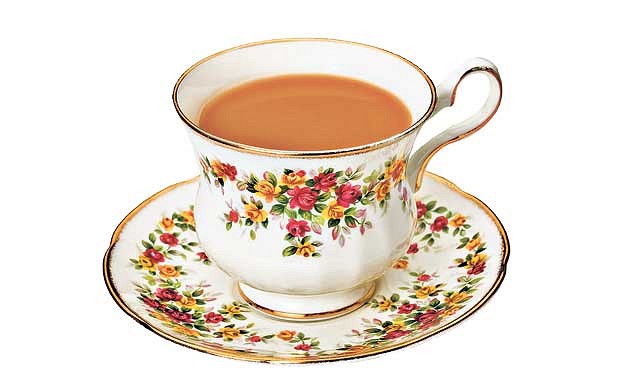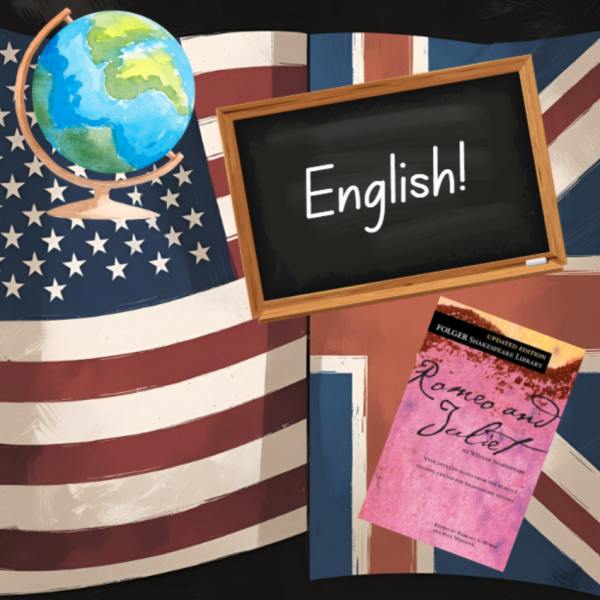2018 Radnorite Word of the Year: Tea
January 11, 2019
While formal dictionaries have yet to adopt the most recent interpretation of the word “tea,” it has become increasingly popular among young adults. Veritably, “tea” has developed into a synonym for “gossip,” “the scoop,” and “news,” as evidenced by Urban Dictionary.
Part 1: Definition and Usage
Radnor Statistics
Due to a survey completed by several Radnor students, conclusions have been drawn regarding Radnor’s interactions with the word “tea.” When asked “what comes to mind when you hear the word tea,” 22% of students responded “a drink” and 78% remarked “gossip.” This evidence undoubtedly verifies the adoption of the modified meaning of “tea” at Radnor High School. In addition, when asked “how often do you use the word tea [as in gossip],” 35% of students admitted to using this word very often, 17% often, 17% sometimes, 13% rarely, and 17% never utilize the word. The statistics convey, too, that “tea” is much more prominently used by girls than boys at Radnor. In reference to this, 67% of boys at Radnor rarely or never use “tea,” while only 18% of girls rarely or never use this term. Finally, when asked “how long have you been using it [tea],” 26% of students answered “over one year,” 9% one year, 13% less than one year, 4% less than six months, 22% less than three months, 9% less than a month, and 17% state that they have not yet incorporated this word into their vocabulary. As exhibited by the data, of the 83% of Radnor Students who use the word “tea,” about three out of five students have taken up the new usage of “tea” in 2018.
Other Meanings
As defined by dictionary.com, “tea” refers to a herbal drink, a shrub, leaves, or any meal. Neglecting the common interpretation, people wonder if an additional definition will ever be added. This also provokes questioning about whether this phrase will prevail or become a fad. While this saying has existed for many years, its popularity has skyrocketed in the last year: 2018. Like most trends, the usage of a modish word does not usually remain prominent for no more than a few years. Although “tea” is not foreseen to entirely disappear in the next couple of years, its popularity is expected to decrease. Nevertheless, a lot can happen in the future and this assumption could be entirely disproven, preserving the ultimate popularity of “tea.”
Appeals and Audience
Stereotypically, women have been associated with the new definition of the word “tea,” as well as adolescents. Women acquire this association mainly because they are historically stereotyped as gossipers and involved in drama , regardless of the many exceptions. These generalizations carry over into the essence of the word “tea” because most individuals feel that women have many more encounters with drama, or “tea.” When put to the test at Radnor, this stereotype has, for the most part, rung true. As evidenced by the data previously provided, more girls tend to use the word “tea” in everyday language. Besides women, young people are generally more associated with this term.
Origins
The modern usage of ‘tea’ uniquely internet-born in its origin. It comes from a classic meme showing Kermit the Frog drinking tea, where the image caption would point something hypocritical or bad out about someone, and then the bottom caption would always say ‘…BUT THAT’S NONE OF MY BUSINESS.’ As time went on and the image circulated further across social media (especially into female and minority spaces on Twitter, as mentioned above), different bottom captions started to be used where Kermit would jokingly change the subject – a common one ended up being that Kermit would comment on how great the tea he drinks in the picture is. Somewhere along the way, this became so common in the Black Twitter-sphere that ‘tea’ become a synecdoche for the entire meme format, and thus shorthand for any drama or dirt uncovered on another person.
No Tea, No Shade
The famous phrase, “no tea, no shade” is used as an informal indication to notify someone in a blatant manner that they are not meaning to cause offence by a certain controversial statement. Often used at the beginning or end of a sentence, this phrase is designed to give a signal that the truth is about to (or has been) spoken, even if it might not be a popular opinion. Synonyms for “no tea, no shade” include “no offense” and “no disrespect.” In short, the expression “no shade, no tea” captures an aim at reporting genuine truths, while recognizing and respecting that other people might feel differently. Overall, this expression is commonly used to soften a blow or to try to make what is said less person and cruel.
Moreover, the incorporation of the word “tea” has been demonstrated greatly at Radnor High School, especially in the last year. Students often remark “what’s the tea” when trying to uncover new gossip or find themselves ending a news announcement to friends by by stating “and that’s the tea.” Like it or not, the new definition of ‘tea’ has taken hold — and it’s not going anywhere any time soon.
Part 2: Rationale
Now that ‘tea’ has been unveiled as Radnorite’s 2018 Word of the Year, it’s important to understand why it was chosen above its competition. It should be no surprise to anyone by now that the new definition of tea was among the most popular neologisms for Radnor students in the past year. As mentioned above, walking the hallways of Radnor for a school day or two will inevitably lead you to overhearing it in use. At the very least, drop the new definition of ‘tea’ in conversation and most students, freshman and senior alike, will understand what you mean.
One of the biggest factors contributing to our Word of the Year verdict is the way tea continued to evolve in use even after it was established to refer to gossip. As it continued to be posted nonstop on the Internet, the scope of the definition of tea expanded from just dirt on another person to any sort of uncomfortable truth worth stating to the social-media masses.
On Twitter these days, ‘tea’ isn’t only being used to identify little contradictions in relationships and lives. The site is now knee-deep in a veritable ocean of tea, ranging from hot takes about the best flavor of Starburst candy to perspectives from minority groups on the current events of the day. Being a young adult in the late 2010s means being hooked up to social media nonstop. The expanded definition of ‘tea’ feels like a summary of that entire experience, since it can refer to any of the millions of strangers’ opinions being transmitted into our brains twenty-four hours a day.
Even when returning to a slightly more narrow definition of tea, its reference to gossip about another person stays relevant too. 2018, like the year that came before it, has been a landmark year for exposing the gross sexual assault, harassment, and poor behavior that permeates our ruling class in Congress and Hollywood. Maybe ‘gossip’ isn’t a strong enough word, but the fundamental concept of it is still very representative of the modern age. Thanks to the Internet, everyone’s secrets are easier to find out and easier to broadcast to the entire world. The proliferation of callouts and information-leaking in this way has brought with it a new consciousness of all the disgusting acts committed and ideas espoused by the most powerful people in the world. The free speech YouTube guys will bemoan these practices as an oppression of the rights of Louis C.K. and Kanye West, but it’s important to understand how gravely evil some of their crimes are. The cultural impact of spilling the tea has helped people realize the growing divide between different ranks of our society, and the way power allows our morals to be circumvented and violated, as well as raise challenging questions about appreciating art and media when its creators have done awful things.
‘Tea’ may seem like a petty thing on the surface, but it’s truly deserving of Word of the Year because of what its widening definition represents. On top of its popularity, ‘tea’ as we know it now speaks to trends emblematic of 2018: namely the endless march of social media and its newfound response to the grotesque nature of American celebrity. Is it stupid and a little scary to wring so much out of a meme word? Absolutely. But 2018 saw a high council of aging prosecutors interrogating a sweating prep school mayonnaise lawyer about what boofing is, beamed live onto every laptop in America. Considering that, it’s safe to say ‘stupid and/or scary’ is actually quite accurate for describing the past year — and that’s the tea.








